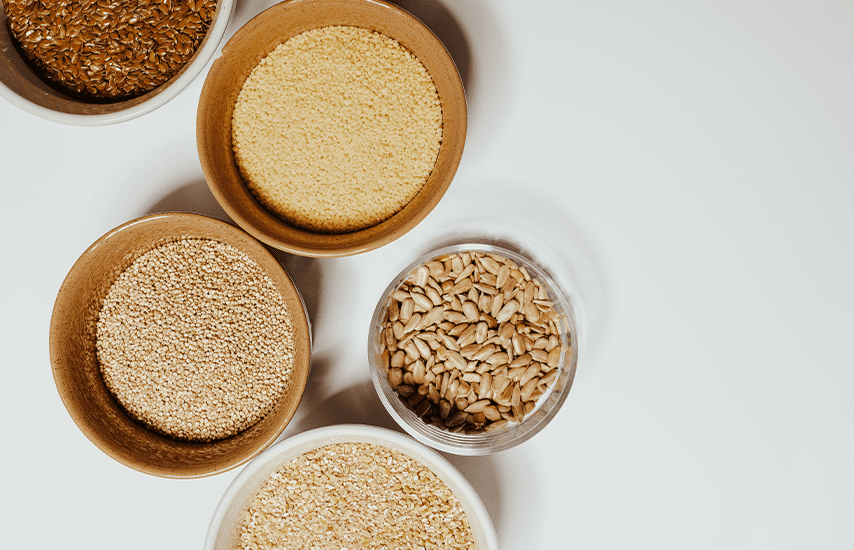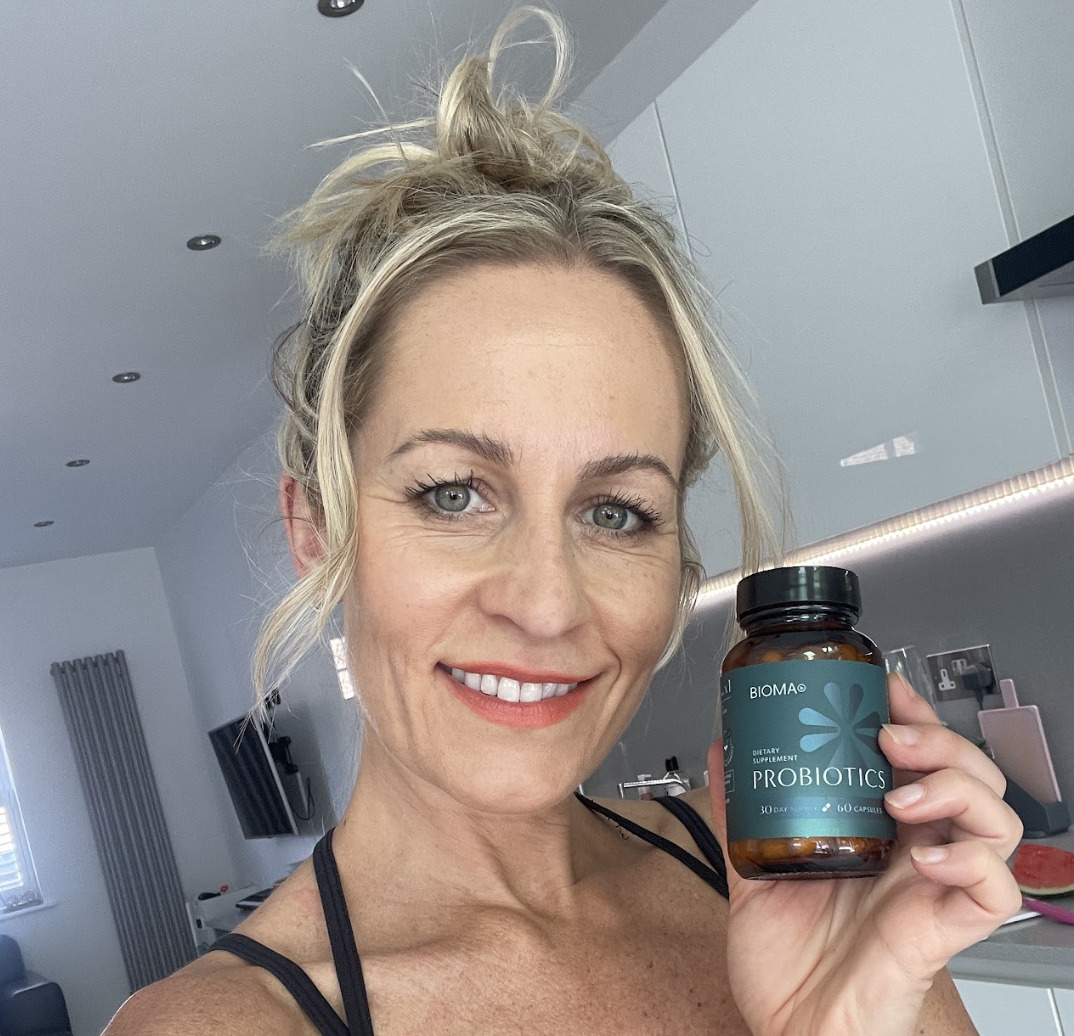Probiotics for Gas and Bloating Relief: Top-Rated 2024 Guide

Gas and bloating are common yet uncomfortable issues that many people face daily. In this article, we delve into the natural solution that probiotics offer for these digestive woes.
We’ll explore how certain probiotics, backed by scientific research, can alleviate discomfort. If you’re seeking relief from persistent gas and bloating, this guide offers practical insights into choosing the right probiotics and integrating them into your daily routine for digestive comfort.
Understanding Gas and Bloating
Gas and bloating are common digestive problems that many people experience. They often result from the digestive process, where certain foods get broken down, producing gas as a byproduct.
Conditions like irritable bowel syndrome (IBS) and small intestinal bacterial overgrowth (SIBO) can exacerbate these symptoms, leading to discomfort and abdominal pain. Dietary habits, food intolerances, and a poor diet can also contribute to excessive gas production and bloating.
Understanding the root causes of these symptoms is crucial in managing them effectively. A balanced gut plays a significant role in this, as it can influence everything from gut motility to gas production, making the management of these symptoms a vital aspect of maintaining overall gut health.
How Probiotics Help

Probiotics have been increasingly recognized for their role in alleviating gas and bloating. These beneficial bacteria restore a healthy balance to the gut microbiota, which is crucial for proper digestion. When the balance of gut bacteria is disrupted, it can lead to digestive issues like bloating and excessive gas.
What do probiotics do, exactly?
The mechanism behind these probiotics involves several factors. Firstly, probiotics can help regulate gut motility, ensuring that food moves through the digestive tract efficiently, reducing the likelihood of gas buildup. They also play a role in breaking down food substances that are typically hard to digest, which can otherwise lead to gas production.
Additionally, certain probiotic strains have been found effective in managing irritable bowel syndrome, a condition often associated with bloating and gas. Studies suggest that regular intake of these probiotics can alleviate IBS symptoms, including abdominal pain and bloating.
Moreover, for individuals dealing with small intestinal bacterial overgrowth (SIBO), a condition where excess bad bacteria in the small intestine cause bloating and gas, probiotic supplements can help restore the natural bacterial balance. This can be particularly beneficial in reducing bloating and gas.
To summarize, probiotics offer a natural and effective way to manage gas and bloating.
By enhancing gut health and addressing underlying conditions like irritable bowel syndrome and small intestinal bacterial overgrowth, probiotics can provide significant relief and improve overall digestive comfort.
Easy, natural, and non-invasive – win-win! So, what exactly should you look for if you’re down to solve your digestive issues this way? Let’s cover that in the next section.
Best Probiotics for Bloating

When it comes to alleviating bloating, certain probiotic strains are particularly effective. Among these, Bioma includes some key strains known for their benefits in managing bloating and improving digestion:
- Bifidobacterium lactis. This strain is highly regarded for its ability to improve gut health and reduce symptoms of irritable bowel syndrome (IBS), including bloating and abdominal pain.
- Bifidobacterium longum and Bifidobacterium breve. Both are known for their role in maintaining a healthy gut microbiome, aiding in digestion, and helping reduce gut discomfort like bloating.
- Xylooligosaccharide (XOS). While not a probiotic itself, XOS is a prebiotic that feeds the healthy bacteria in the gut, including Bifidobacteria, enhancing their efficacy in combating bloating.
- Tributyrin. As a postbiotic, tributyrin plays a crucial role in supporting the overall health of the gut lining, which is vital for preventing bloating and promoting digestive health.
Bioma’s formula, combining these effective strains and compounds, makes it a standout probiotic supplement for those struggling with bloating.
By targeting the root causes of digestive system discomfort and supporting a healthy balance of gut bacteria, Bioma offers a comprehensive approach to managing bloating and enhancing gut health.
These ingredients work synergistically to not only provide immediate relief from bloating but also to contribute to the long-term health of the digestive tract. So, for those seeking a solution for bloating, Bioma presents a well-rounded, scientifically-backed option.
Side effects: Bioma’s ingredients are generally well-tolerated and safe. Bloating might be a temporary side effect. If you are new to using probiotics, you might feel a little bloating for the first few days.
Relieving Bloating with Probiotics
Integrating probiotics into your diet to relieve bloating involves more than just taking supplements; it’s about creating a balanced gut environment conducive to overall digestive wellness.
Here are some tips to effectively use probiotics for bloating relief:
- Consistent usage. Regular intake of a probiotic supplement is key. Consistency helps maintain a healthy gut, significantly reducing bloating over time.
- Combine with a balanced diet. Incorporating fermented foods rich in natural probiotics, such as yogurt, kefir, and sauerkraut, can enhance the effects of probiotics. A diet high in fiber from fruits, vegetables, and whole grains also supports digestion.
- Stay hydrated. Drinking plenty of water aids the digestive process and the efficacy of probiotics in the gut microbiome.
- Mindful eating habits. Eating slowly and chewing food thoroughly can reduce air swallowing, often contributing to gas and bloating.
- Monitor your body’s response. Pay attention to how your body reacts to different probiotic strains or changes in your diet. What works for one person in managing bloating may differ for another.
To effectively manage bloating using probiotics, it’s important to choose the right supplement and maintain a healthy lifestyle and dietary habits that support your gut health. By following these guidelines, you can maximize the effectiveness of probiotics against bloating.
Probiotic-Rich Foods for Gas Relief

In addition to taking probiotic supplements, incorporating probiotic-rich foods into your diet can be a natural aid in reducing gas and bloating.
These foods contain live, beneficial bacteria that can help balance your gut microbiota, alleviating digestive discomfort. Here are some probiotic-rich foods that can support your digestion:
- Yogurt. One of the most well-known sources of probiotics. It’s important to choose yogurts that have live or active cultures and are low in added sugars.
- Kefir. A fermented milk drink similar to yogurt but with a thinner consistency, kefir is rich in probiotics and can be easier to digest for people with lactose intolerance.
- Sauerkraut. Fermented cabbage is not only rich in probiotics but also high in fibers, vitamins, and antioxidants.
- Kimchi. A spicy Korean side dish made from fermented vegetables, primarily cabbage, which can contribute to a healthy gut.
- Miso. A Japanese seasoning produced by fermenting soybeans with salt and a fungus, used in miso soup, which is beneficial for digestion.
- Tempeh. A fermented soy product that’s a great source of probiotics and a protein-rich alternative for vegetarians and vegans.
Incorporating these fermented foods into your diet can help enhance the beneficial bacteria in your gut, complementing the effects of probiotic supplements.
A diet rich in these foods, along with a regular intake of a high-quality probiotic like Bioma, can be an effective way to manage gas and bloating and maintain overall digestive health.
Conclusion
In conclusion, tackling issues like gas and bloating effectively requires a multifaceted approach, with probiotics playing a crucial role.
For those suffering from conditions such as irritable bowel syndrome, incorporating a probiotic supplement like Bioma can be particularly beneficial. Not only do these supplements help alleviate specific symptoms like bloating, but they also contribute to the overall health of the gut microbiome.
The gut microbiome is a complex and dynamic ecosystem that plays a significant role in various aspects of health, including the immune system. Incorporating probiotics for bloating into your daily routine, whether through supplements like Bioma or probiotic-rich foods, can lead to noticeable improvements in your digestive system and overall well-being.
Remember, while probiotics can offer significant relief, it’s always best to consult with a healthcare professional, especially if you have underlying health conditions like IBS or inflammatory bowel disease.
References
- Azpiroz, F., & Malagelada, J. R. (2005). Abdominal bloating. Gastroenterology, 129(3), 1060-1078.
- Rao, S. S., Rehman, A., Yu, S., & De Andino, N. M. (2018). Brain fogginess, gas and bloating: a link between SIBO, probiotics and metabolic acidosis. Clinical and translational gastroenterology, 9(6).
- Williams, N. T. (2010). Probiotics. American Journal of Health-System Pharmacy, 67(6), 449-458.
- Arunachalam, K., Gill, H. S., & Chandra, R. K. (2000). Enhancement of natural immune function by dietary consumption of Bifidobacterium lactis (HN019). European Journal of Clinical Nutrition, 54(3), 263-267.
- Wong, C. B., Odamaki, T., & Xiao, J. Z. (2019). Beneficial effects of Bifidobacterium longum subsp. longum BB536 on human health: Modulation of gut microbiome as the principal action. Journal of Functional Foods, 54, 506-519.
- Heuvelin, E., Lebreton, C., Grangette, C., Pot, B., Cerf-Bensussan, N., & Heyman, M. (2009). Mechanisms involved in alleviation of intestinal inflammation by Bifidobacterium breve soluble factors. PLoS One, 4(4), e5184.
- Okazaki, M., Fujikawa, S., & Matsumoto, N. (1990). Effect of xylooligosaccharide on the growth of bifidobacteria. Bifidobacteria and Microflora, 9(2), 77-86.
- Leonel, A. J., Teixeira, L. G., Oliveira, R. P., Santiago, A. F., Batista, N. V., Ferreira, T. R., … & Alvarez-Leite, J. (2013). Antioxidative and immunomodulatory effects of tributyrin supplementation on experimental colitis. British journal of nutrition, 109(8), 1396-1407.
| Summary |
|---|
– Gas and bloating are common digestive problems that many people experience. – Probiotics offer a natural and effective way to manage these symptoms. – In addition to taking probiotic supplements, incorporating probiotic-rich foods into your diet can also help reduce gas and bloating. |
Related articles






